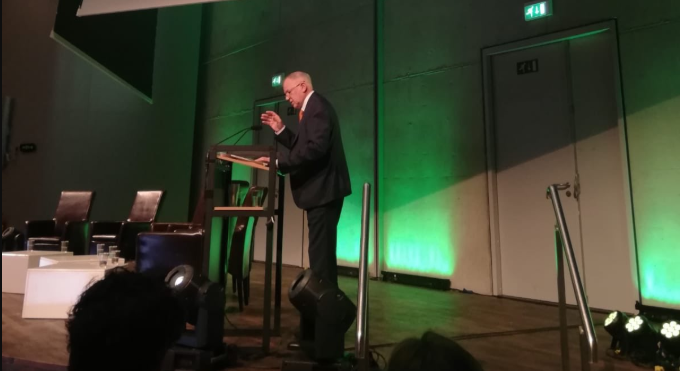Vytenis Andriukaitis, EU Commissioner for Health & Food Safety shared his enthusiasm for open discussion on the potential of gene editing during his speech last week at CRISPRcon, in Wageningen, The Netherlands on 20-21 June 2019. This conference, for the first time in Europe, gathered a broad selection of diverse voices to discuss the future of CRISPR and related gene editing technologies across a variety of applications in agriculture, health, conservation and more.

“New breeding techniques can help us tackle some profound challenges such as food security, food intolerances, or climate change. Examples include low-gluten, non-transgenic wheat has been developed through gene editing by Instituto de Agricultura Sostenible (Institute for Sustainable Agriculture), in Spain and University of Minnesota, in USA. This wheat could be used to produce low-gluten foodstuff.
Or potatoes with a non-browning trait and producing less asparagine have been developed through gene editing. These potatoes provide the potential for the formation of acrylamide to be reduced by 60-70% when potatoes are baked, fried or roasted at high temperatures. (This could completely ‘save’ Belgium fries) All in all, gene editing techniques can be used to improve crop resistance, herd health, food quality, diets and nutrition.”
From all the messages on my twitter feed yesterday on #CRISPRcon2019 I see once again how passionate people are about this. My personal conclusion is: we must debate #geneediting, openly, without bias, with respect to all opinions.
— Vytenis Andriukaitis (@V_Andriukaitis) June 21, 2019
Speaking points here: https://t.co/ul9FOrp5qO pic.twitter.com/GYTAVRnsV8